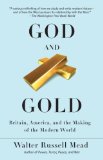Media Reviews
The New York Review of Books - William H. McNeill
I agree with Huntington when he argues that the commitments to particular patterns of civilization and particular religious identities are rapidly gaining importance in international affairs. But I disagree with the conclusions he draws; for it seems to me that increasing connections among civilizations simultaneously sustain a contrary trend toward global cosmopolitanism. This trend, in my view, offers by far the best hope for the future, and is therefore very much worth fostering, as the universalist strand in American foreign policy, perhaps naively, tends to do.
The New York Times - Richard Bernstein
A benchmark for informed speculation on those always fascinating questions Just where are we in history? What hidden hand is controlling our destiny?...A searching reflection on our global state.
The New York Times Book Review - Michael Ignatieff
The Huntington argument that the West should stop intervening in civilizational conflicts it doesn't understand makes a powerful claim that internationalists cannot easily ignore. The question is whether there remain certain human interests that all civilizations had better endorse for our common survival. Genocide is genocide, famine is famine, and a world where civilizations no longer intervene to save strangers from these universal threats is one that not even Samuel P. Huntington would feel safe in.
The Washington Post Book World - Michael Elliott
The book is studded with insights, flashes of rare brilliance, great learning, and in particular, an ability to see the familiar in a new and provocative way.
The Wall Street Journal - Francis Fukyama
The book is dazzling in its scope and grasp of the intricacies of contemporary global politics.
Library Journal
This book attracted attention because of its thesis that the clashes of civilizations are the greatest threat to world peace. However, Huntington's work is important here for his second chapter on the nature and study of civilizations (with its excellent bibliographic sources), and his last chapter on the future of the West and other core civilizations.
New Statesman (UK) - Fred Halliday
Of all the broad-sweep books on the post-cold war world Huntington's is without doubt the worst and the most pernicious. It is the worst because it is careless with facts, ignorant of history and indifferent to the whole range of social theory that has, with due care, looked at such issues as culture, socialisation and tradition. . . . For a book that claims to be about different civilisations, it is striking that all the references are to books in English.Huntington is pernicious because he fuels myths about cultural conflict, and reinforces those who seek to consolidate relativist, community-based authority.
 Henry A. Kissinger
Henry A. Kissinger
Sam Huntington, one of the West's most eminent political scentists, presents a challenging framework for understanding the realitites of global politics in the next century.
The Clash of Civilizations and the Remaking of World Order is one of the most important books to have emerged since the end of the Cold War.
Reader Reviews
larry b.
That book is unique in scope, readability. and integrity. It's highly informative and explanatory.
It's written from the point of view of an American, who is fully aware that he presents the western view on world peace,
and world's conflicts: the ...
Read More
umesh shahane
excellent book,
events on sept 11 have proved that clash is not going to stop.
asad
Each civilization claims to be perfect or close to the perfect, but it is a relative term. The civilization or culture takes its roots from the particular soil. Old civilizations, in my view can only be blended with the invading ciilizations, but ...
Read More
misha
The guy is a disgrace to mankind. It seems to me that he has already made up his mind about the faith of the middle east without properly researching the facts. Any conscious human being with half a brain would know better, (especially a harvard ...
Read More
Write your own review!

 Henry A. Kissinger
Sam Huntington, one of the West's most eminent political scentists, presents a challenging framework for understanding the realitites of global politics in the next century. The Clash of Civilizations and the Remaking of World Order is one of the most important books to have emerged since the end of the Cold War.
Henry A. Kissinger
Sam Huntington, one of the West's most eminent political scentists, presents a challenging framework for understanding the realitites of global politics in the next century. The Clash of Civilizations and the Remaking of World Order is one of the most important books to have emerged since the end of the Cold War.

